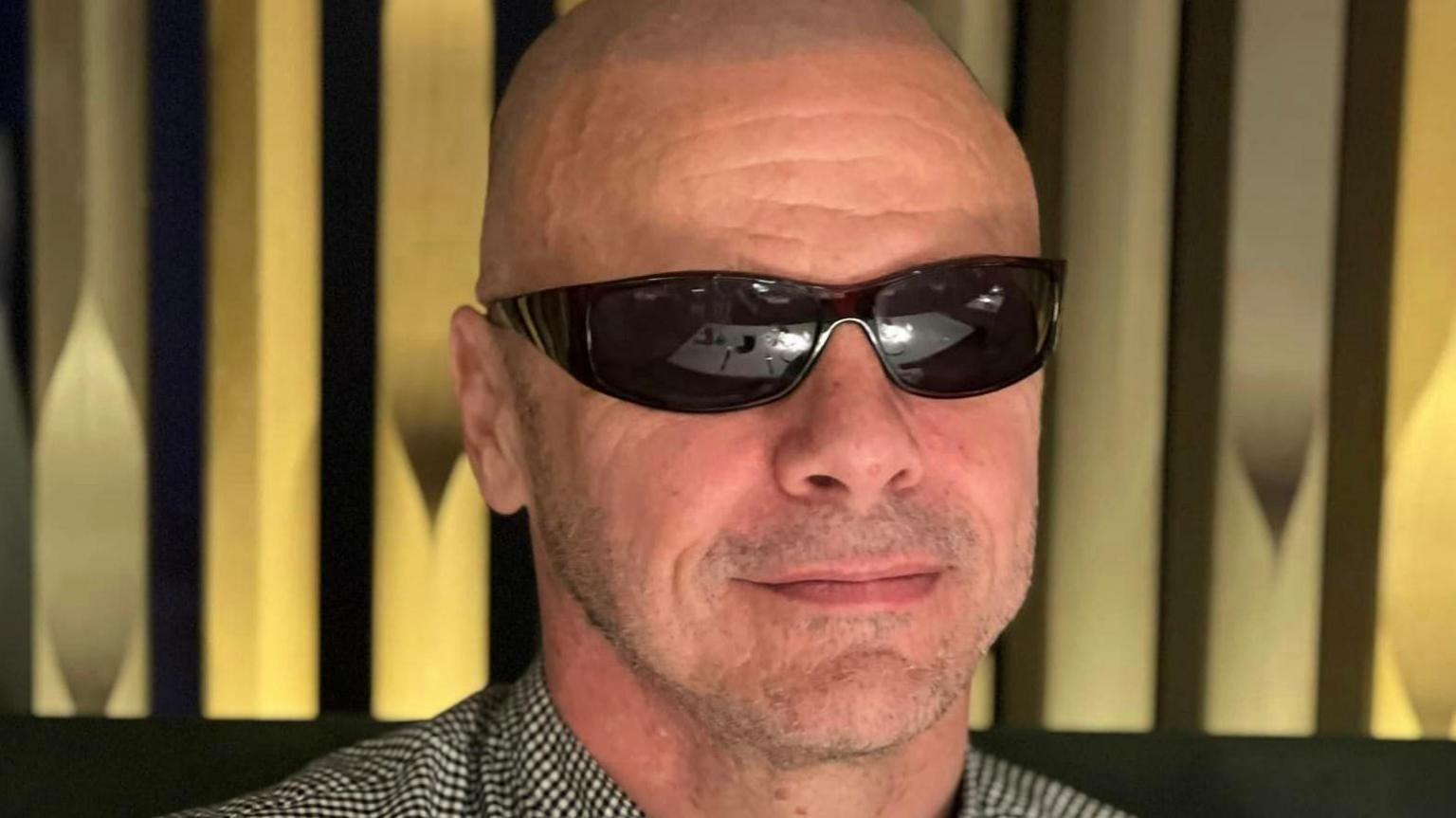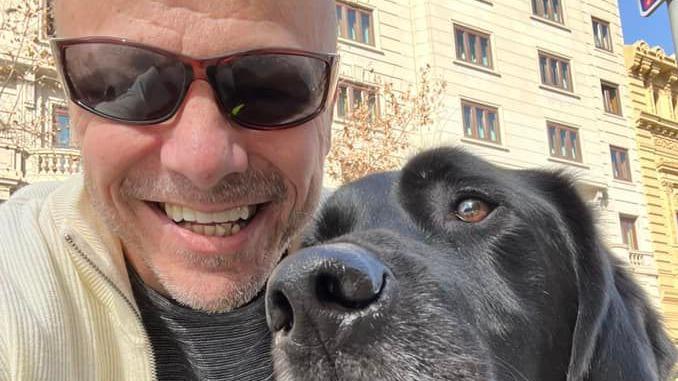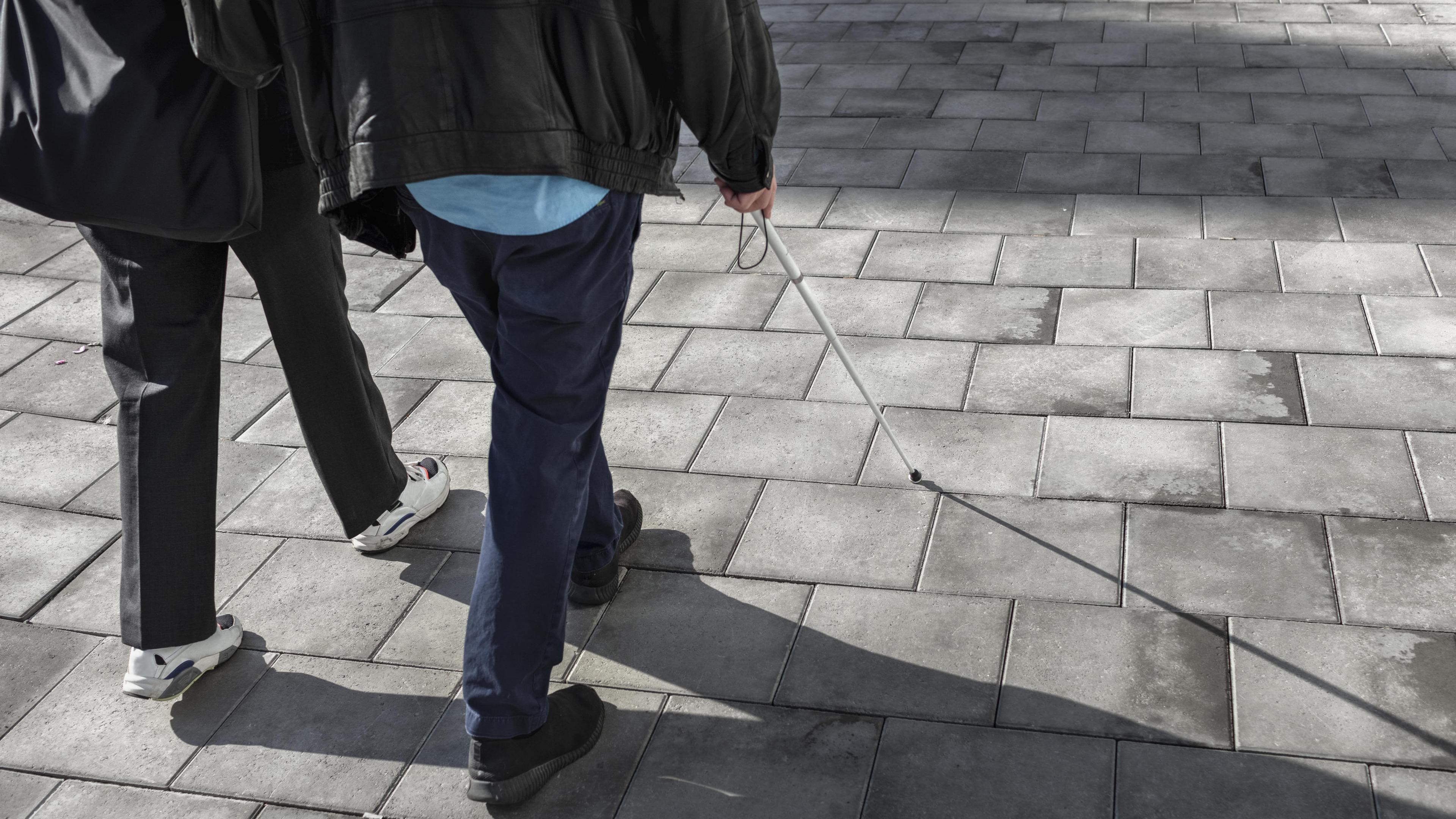'I felt so alone while awaiting sight loss help'

Terry Quinn said he was left without adequate support from his local authority when he lost his sight
- Published
A visually impaired man has said he had "never felt so alone" as he waited for support after his sight deteriorated.
Terry Quinn, from Baildon in West Yorkshire, said he was left in despair as he struggled to access help from his local council to cope with his new disability.
Sight loss charity the Royal National Institute of Blind People (RNIB) has warned thousands of people are being denied support due to a lack of resources in the social care system.
Bradford Council said it had recently increased the number of vision rehab specialists in its service to ensure a "quicker response".
Mr Quinn, 59, was registered as severely sight impaired in 2019 after suffering from diabetic retinopathy.
Speaking to the PA news agency, he said that his hospital filled out a certificate of vision impairment form when his sight failed and told him the local authority would be in touch, "but they never were".
"I have never felt so alone in my entire life," Mr Quinn added.

Mr Quinn said his guide dog Spencer had given him back his independence
He said: "It was through a routine appointment with a wonderful lady at a local Low Vision clinic - she could see how I was struggling - she asked me if I had spoken to anyone from the council at all - vision rehab services.
"I said 'not at all'."
Mr Quinn said at that point a specialist from the council service called him and he "cried my eyes out" over the phone with him, after which he received three home visit in the space of a few months.
He said that while he was given help to get a travel pass and lessons on how to use a white cane and negotiate steps, he was only taken outside once and shown how to find a kerb.
He added: "I couldn't go on anymore, I would go to bed on an evening, hoping and praying that I would not wake in the morning."
It was only when he managed to obtain a guide dog through Guide Dogs UK that Mr Quinn said his life changed and he rediscovered his independence.

The RNIB said care assessments were not being carried out quickly enough
But the RNIB said that 86% of local authorities in England were failing to meet its recommended 28-day deadline for carrying out social care assessments on people who have lost their vision, with some taking more than a year.
The charity said this was leaving those affected at increased risk of accidents, injuries and worsening mental health.
Vivienne Francis, the RNIB's social change officer, said: "We know that local authorities in England are struggling to cope with the rise in demand for vision rehabilitation services and to resource the service effectively.
"However, threadbare services mean that thousands of blind and partially sighted people wait often more than 12 months without the support they're entitled to so they can live their lives to the full."
The Local Government Association (LGA) said the RNIB's findings showed the "impact of not having adequate funding, staffing or support", within councils.
A spokesperson for Bradford Council said: "We are unable to comment on individual cases, but we want to assure people that our adult sensory needs team is available to provide support to anyone in the district who is experiencing difficulties due to a visual and/or hearing impairment.
“Our multidisciplinary sensory needs service works closely with residents who require support in relation to sensory needs to achieve their desired outcomes.
"The service also provides a duty service that people can contact as and when required."
Follow BBC Yorkshire on Facebook, external, X (formerly Twitter), external and Instagram, external. Send your story ideas to yorkslincs.news@bbc.co.uk.